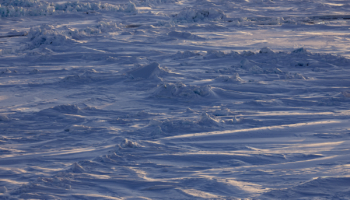The ROFS Division addresses the following streams of activities:
- Managing and Enhancing the Copernicus Mediterranean and Black Sea Systems:
The division leads efforts in coordinating, optimizing, and developing reanalysis, analysis, and forecast systems for the Mediterranean and Black Sea regions within the Copernicus Marine Service. - Development of Regional Ocean Modeling and Data Assimilation:
The division develops and implements state-of-the-art regional ocean models and data assimilation systems specifically targeting the Mediterranean and Black Sea regions and it is involved in the innovation, design and development of regional forecasting systems, including coupled and ensemble forecasting systems. - Optimizing Operational Chains:
The division is committed to the continuous maintenance, optimization, and enhancement of operational chains for forecasting systems in the Mediterranean (MedFS), Black Sea (BSFS), and Global Ocean (GOFS16) domains. - Streamlining Data Management:
The division implements data management, archiving, and delivery tools to facilitate the access of critical data for forecasting activities.
ROFS Projects
Non-indigenous species (NIS) pose a significant threat to biodiversity and ecosystems globally,…
AdriaClimPlus project aims at developing a shared framework for advancing knowledge and…
An international collaborative project to better understand the impact of amplified warming…
ROFS Publications
The Black Sea near-past wave climate and its variability: a hindcast study
Causio S., Federico I., Jansen E., Mentaschi L.; Ciliberti S., Coppini G., Lionello P.
2024, Frontiers in Marine Science, Volume 11 - Article number 1406855, doi: 10.3389/fmars.2024.1406855
Published articles
Climate projections of the Adriatic Sea: role of river release
Verri G., Furnari L.; Gunduz M., Senatore A.; Santos Da Costa V. , De Lorenzis A., Fedele G., Manco I., Mentaschi L.; Clementi E., Coppini G., Mercogliano P.
2024, Frontiers in Climate, doi: 10.3389/fclim.2024.1368413
Published articles
Socioeconomic impact of agricultural water reallocation policies in the Upper Litani Basin (Lebanon): a remote sensing and microeconomic ensemble forecasting approach
Sapino F.; Hazimeh R.; Pérez Blanco C. D. , Jaafar N.
2024, Agricultural Water Management, Volume 2961 - Article number 108805, doi: 10.1016/j.agwat.2024.108805
Published articles
Latest on Ocean
Blue4All is a HORIZON Europe Ocean Mission project working towards addressing marine conservation and restoration challenges in Europe. It proposes a new approach to Marine Protected Areas (MPAs) that aligns with EU Biodiversity Strategy and national initiatives.
This newsletter issue comprises updates from the project, as well as news like the soon to be launched networking space for MPA managers and stakeholders, the outcomes of the roleplaying game realized during the UN Ocean Decade Conference in Barcelona last April, and project contributions to the key action points for marine protection in the Eastern Baltic.
Ship weather routing, which involves suggesting low-emission routes, has the potential to help decarbonise maritime transport. However, the quantitative impacts of this approach are still being fully explored. New developments in the graph-search VISIR-2 (discoVerIng Safe and effIcient Routes) model led by the CMCC’s Gianandrea Mannarini provide a step in the right direction.
A new study, led by CMCC researcher Lorenzo Zampieri, sheds light on the shortcomings of models in accurately simulating the heat conduction through the sea ice system during the winter months. Diagnosing these shortcomings using novel observations improves our understanding of the sea ice system and will enable better parameterization for climate models.
CMCC is a partner of the travelling exhibition examining the ocean’s dynamics as viewed from Space. The exhibition explores current efforts to protect our valuable marine ecosystems using stunning Earth observation satellite images, augmented reality, and interviews with experts, local decision-makers, and coastal inhabitants engaged in the United Nations Ocean Decade. It was inaugurated on April 8, 2024, at the Port of Barcelona, within the framework of the United Nations Ocean Decade Conference.






